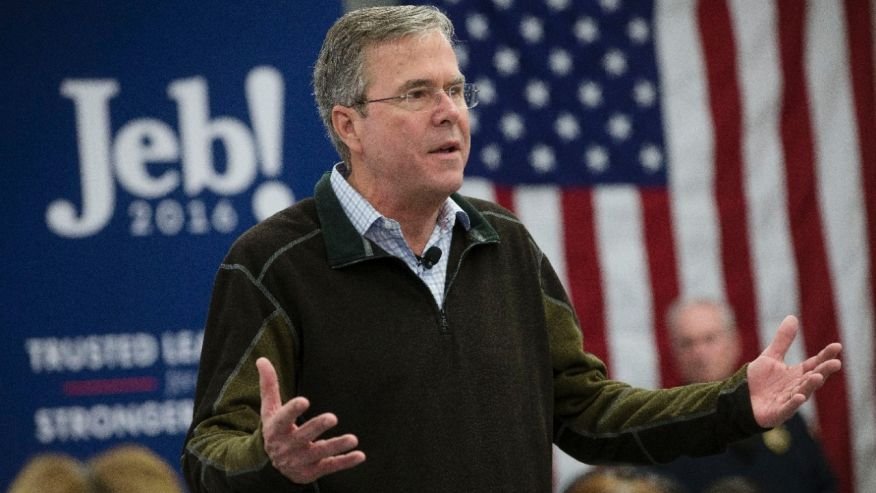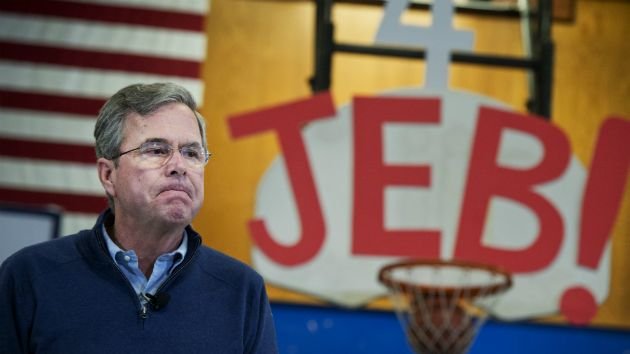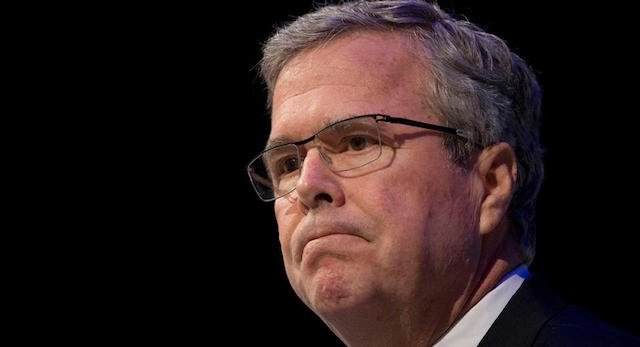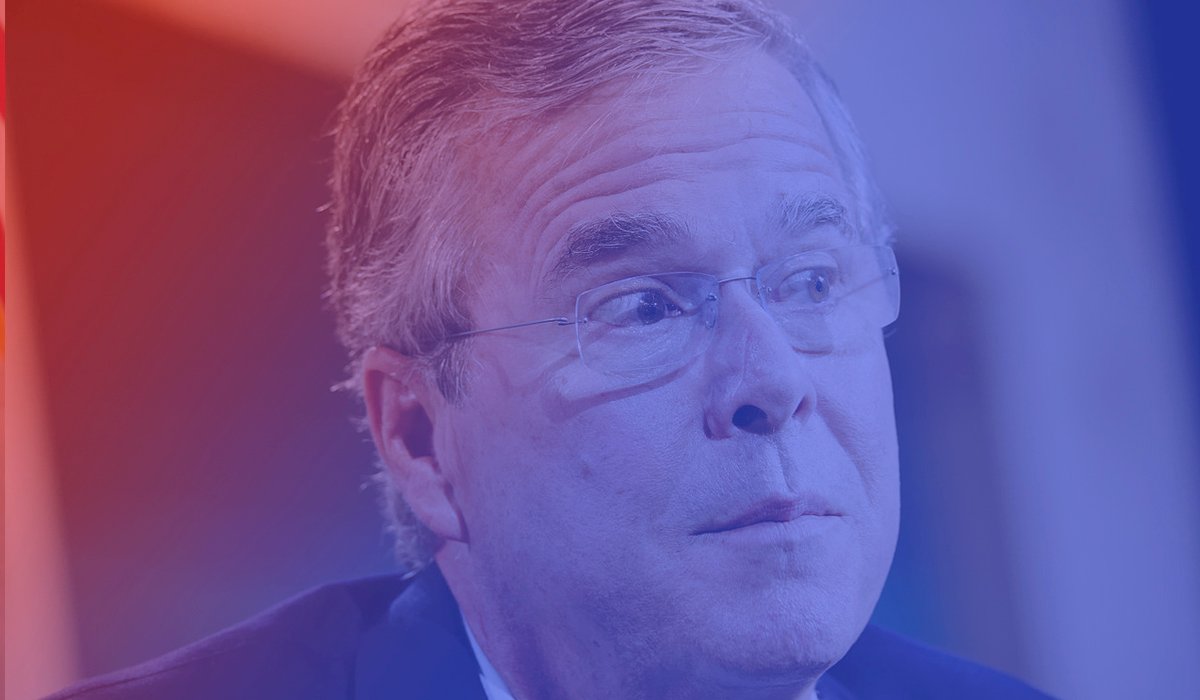By the time Jeb(!) had entered the presidential race, nearly a full two years before voting was set to begin, the Bush brand had stood the test of time in Republican politics. He had posted on Facebook in December 2014 his intention to run, and the assumption was from that point forward that the GOP nomination was his to own.
The family’s ambition had resulted in three terms in two governor’s mansions, three terms in the White House, a brand new Texas ag commissioner, and one now-infamous “Access Hollywood” incident by cousin Billy. Even their pets are famous.
But reality began to set in around midsummer 2015, when Donald Trump’s rallies began to grow larger and his takedowns of Jeb, “the joyful tortoise,” were everything angry Republican voters wanted to see.
What happened

AP Photo/John Minchillo
Like Trump’s eventual opponent, Hillary Clinton – who was herself flanked from the left after assuming the presidency her birthright – Jeb stood as a dynastic totem that nearly nobody wanted to see take up duty in Washington’s top political office.
He consistently polled well below 20 percent, although his campaign touted his “readiness,” his “steadiness” and, of course, his “experience.”
The minute Trump labelled him Low Energy Jeb, however, none of that mattered. At the expense of Jeb(!), Mr. Trump bodyslammed the establishment’s main man and in a real heel move took over the political ring to advance his own career with trash talk and catchphrases as the Bushes refused to “lower themselves” to his level.
Moments that mattered

AP Photo
At the GOP debates, news execs realized there was a goldmine in Trump’s public potshots and anti-political-correctness diatribes that eventually put him over his more seasoned opponents.
Jeb(!) was the embodiment of the old way, while Trump represented change – his mocking of Mr. Bush only grew more aggressive throughout the debate season as February’s all-important contests of Iowa and New Hampshire drew nearer.
<iframe width=”560″ height=”315″ src=”https://www.youtube.com/embed/r0Th70moeuc” frameborder=”0″ allowfullscreen></iframe>
When Trump refused to show up to one debate, it was a grand opportunity for Bush. But even then, the news was the absence of the blustery businessman, while Jeb appeared frightened by his opponent even when he wasn’t on stage.
Jeb’s political plaudits were derived from the vast network of the 41st and 43rd presidents, and his donors heaped huge sums of money at the former Florida governor. On paper it was a great strategy – outspend anyone who could enter the GOP race, except maybe Mitt Romney – but it played right into the small hands of Trump.
Their opponent, former Arkansas Gov. Mike Huckabee, summed it up nicely at one of the debates: “The problem is we have a Wall Street-to-Washington access of power that has controlled the political climate,” he said. “The donor class feeds the political class who does the dance that the donor class wants. And the result is, federal government keeps getting bigger.”
An unceremonious exit

AP Photo/Paul Sancya
Bush was forced to bow out of the race after placing fourth in the New Hampshire primaries. At his peak, Bush only ever harnessed 15 percent of support from right-leaning GOP voters.
“The people of Iowa, New Hampshire and South Carolina have spoken,” he said, choking up. “And I really respect their decision. So tonight, I am suspending my campaign.”
His optimistic conservatism was no match for the anger channeled by Trump, and in 2016, Jeb(!) looked completely out of fashion – even as conventional wisdom and party insiders engineered his coronation from the onset. Resistance to that brand of Republicanism was never more apparent than at one rally, when delivering a speech, Bush’s crowd remained silent – and looking dejected, he had to ask them all to “Please clap.”
And so it was that Bush-Clinton II never came to fruition, although we were all at least blessed with a fantastic eulogy from late-night comedian Stephen Colbert:
“Now, the turtle is dead. Joyful no more, and what does one do with a dead tortoise?”
WATCH: Stephen Colbert eulogizes the candidacy of Jeb Bush:
